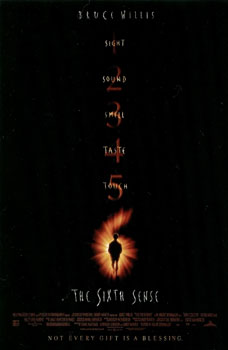Gonna Change Your Way of Thinking
Joel Gilbert’s documentary on Bob Dylan’s sudden conversion to Christianity is an authentic, detail-oriented and thought-provoking work. It is a must see for fans and casual viewers alike. The subject-matter alone is fascinating and remains, thirty years from its occurrence, a little told story about the already mythic and mysterious artist.

On November 9, 1979, Bob Dylan shocked San Francisco (and America at large) by performing nothing but new songs from his gospel album titled “Slow Train Coming,” and other then-unreleased gospel songs written by the rock poet. The fans, expecting his hits, classics, or the man they have created in their mind as a result of all of his previous records, is nowhere to be found.
When presumably being asked something about why he didn’t play any of his old songs at the concert or why he may have changed his music’s message, Dylan speaks in archived footage from the era “The old stuff’s not gonna save them and uh… I’m not gonna save them. Neither is anybody else gonna save them. They can boogie all night. It’s not gonna work.”
The purpose of the first-half seems to be orienting the viewer with the world Dylan was entering at the time: The Vineyard Movement, a decentralized and individualistic approach to Christianity—progressive at the time. This viewpoint, coupled with the perspective of Messianic Judaism, or, Jewish believers in Jesus as the foretold Messiah, frames the manner in which Bob Dylan, of Jewish descent, considers and then pursues his own journey to Jesus Christ.
The second-half of the film covers the most controversial music Dylan had made since he went electric in 1965. Alienating his fan base once again, Dylan pursued this journey of personal discovery as his primary artistic expression for two and a half full-length albums and four years of touring, after which fans and critics alike remain, I would argue, mostly confused about where his belief system stands today. We are treated to samples of Dylan’s preaching at the concerts, and interviews with the band, and there is, at the heart of the film, a serious discussion of the seemingly contradictory dichotomy between religion and rock ‘n’ roll and whether Dylan was able to reconcile the two.
The film is helmed by Joel Gilbert, and released by the company Highway 61 Entertainment. Gilbert and the company seem to be offshoots of a professional Dylan tribute band called “Highway 61 Revisited.” Gilbert dresses like Dylan, and passes as a shadow of someone who might have been a version of Dylan in “I’m Not There.” Gilbert’s appearance is a bit distracting—it makes the film seem wholly subjective from the jump. But Gilbert asks the right questions about this period of life, challenges his interview subjects from different perspectives, and is a competent and informed interviewer. It also does an excellent job of bringing in voices of contempt for Dylan’s work during that period, most notable of which apparently was Joel Selvin, writer for the San Francisco Chronicle. Selvin really gives the music industry, critics, and disenchanted fans, a voice in this film.
I would argue that the only weakness of the documentary is that the entire affect of the film, in the aggregate, seems to be sympathetic to Dylan’s conversion. But, in truth, the film spends a lot of time trying to understand what Dylan was converting to, rather than promoting or discouraging why he converted.

In the end, the film ends on a different type of note than it began, takes a somewhat surprising turn, and attempts to reveal what the film feels Dylan has always been trying to get at in his never-ending search.
As a fan of Dylan, my greatest acclaim for this film is that it covers a great deal of unchartered territory, to my knowledge, for the very first time on film and uses primary sources. It may be the most important source on Dylan’s Christian music to date, period. Only “Behind the Shades Revisited,” a book on Dylan’s life, has adequately shed some light on Dylan’s work in this period to my knowledge, besides the few interviews Dylan has given himself. For enthusiasts and analysts of Dylan’s work, that makes this film very important.
I highly recommend this film for both people who love Dylan and casual viewers who may not have even been aware that this period of Dylan’s music existed.
No matter what conclusion one draws about what Dylan’s life or music means, your perspective is limited prior to having seen this documentary if you had not been deeply involved in Dylan’s music during this period or are not a huge fan of it. It will change the way you think about Dylan’s music, and perhaps his life. If you’re measuring Dylan’s artistry through metrics that do not include an analysis of this period, it will create a different set of rules to do so.




